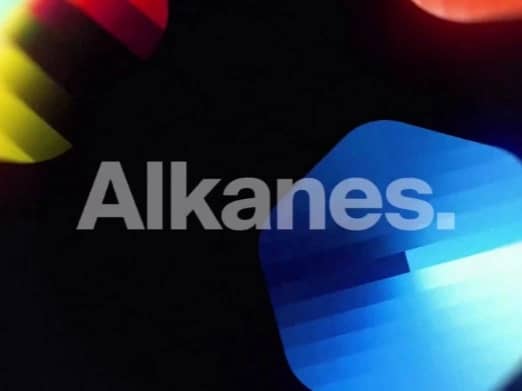위키 구독하기
Share wiki
Bookmark
Alkanes
0%
Alkanes
Alkanes는 비트코인 네트워크 위에 구축된 메타 프로토콜로, 비트코인의 핵심 프로토콜을 변경하지 않고도 스마트 계약 생성 및 실행과 프로그래밍 가능한 토큰을 가능하게 하도록 설계되었습니다. 이는 계약 로직과 상태 변경을 내장하기 위해 비트코인의 기존 트랜잭션 구조, 특히 증인 데이터 필드를 활용합니다. [1] [3]
개요
Alkanes는 단순한 트랜잭션 및 토큰 발행을 넘어 비트코인 블록체인의 기능을 확장하여 분산형 애플리케이션(dApp) 및 복잡한 금융 상품을 비트코인의 기본 레이어에서 직접 개발할 수 있도록 하는 것을 목표로 합니다. [1]
이 프로젝트는 원래 2023년에 Protorunes라는 이름으로 시작되었으며, Ordinals 및 BRC-20 토큰과 같은 비트코인 기반 자산의 부상 속에서 주목을 받았습니다.
2025년 초, 이 이니셔티브는 개발팀인 Oyl Corp.에 의해 Alkanes로 리브랜딩되어 비트코인의 UTXO 모델 내에서 스마트 계약을 용이하게 하는 메타 프로토콜로 자리매김했습니다. [1] [4]
이 프로토콜은 Ordinals 및 Runes가 작동하는 방식과 유사하게 표준 비트코인 트랜잭션 내에 추가 규칙 세트를 내장하여 작동합니다. 데이터 기록을 위해 비트코인 트랜잭션의 증인 데이터 세그먼트를 활용하며, 이는 Ordinals 프로토콜에서 채택된 방법입니다.
Runes 프로토콜에서 Alkanes는 토큰 생성을 위한 구조를 통합하여 유연성과 확장성을 향상시켰습니다. 이 접근 방식을 통해 Alkanes는 기본 아키텍처 및 기존 메타 프로토콜과 호환성을 유지하면서 비트코인에 프로그래밍 기능을 도입할 수 있습니다. [1] [2].
기술 및 작동 방식
Alkanes는 WebAssembly(WASM) 모듈을 비트코인 트랜잭션의 메타데이터에 직접 내장하여 비트코인에서 스마트 계약을 활성화합니다. 이 프로세스에는 여러 단계가 포함됩니다.
- 개발자는 Rust와 같은 고급 프로그래밍 언어를 사용하여 스마트 계약을 작성합니다.
- 계약 코드는 WASM 모듈로 컴파일됩니다.
- 이 WASM 파일은 일반적으로 증인 데이터 필드 내에서 비트코인 트랜잭션에 기록됩니다. [1] [2].
Metashrew로 알려진 외부 인덱서는 이 기록된 메타데이터를 읽습니다. 인덱서는 결정론적 WASM 엔진을 사용하여 오프체인에서 WASM 계약을 실행합니다. 상태 변경을 포함한 이 실행 결과는 후속 비트코인 트랜잭션을 통해 다시 온체인에 기록됩니다. 이 오프체인 실행 모델은 비트코인 네트워크의 합의 레이어에 부담을 주지 않고 복잡한 로직을 허용합니다. [2].
Alkanes는 단일 기록 내에 여러 메시지를 포함할 수 있는 데이터 기본 요소인 "protostones"를 활용합니다. 이 구조는 토큰을 효율적으로 발행, 교환 및 소각하는 것과 같은 다양한 작업을 용이하게 합니다. 주요 기술 혁신은 계약 배포를 위한 팩토리 모델로, 개발자가 기존 계약 템플릿에 매개변수를 전달하여 새로운 자산을 출시할 수 있으므로 완전히 새로운 계약을 배포할 필요성을 줄이고 블록 공간을 절약할 수 있습니다. [2].
이 프로토콜은 모든 스마트 계약을 통합 템플릿에 따라 토큰으로 취급합니다. 이 설계를 통해 자산이 계약으로 이전되면 코드가 자동으로 실행되어 단일 비트코인 트랜잭션 내에서 복잡한 작업 시퀀스를 활성화할 수 있습니다. Alkanes 스마트 계약은 내부 상태를 유지하고, 토큰 잔액을 읽고, 다른 계약을 호출하고, 자체 트랜잭션 및 블록의 데이터에 액세스하여 정교한 지출 규칙을 허용할 수 있습니다. [1] [3]
Alkanes는 Ordinals 및 Runes와 같은 기존 비트코인 메타 프로토콜과 호환되도록 설계되었습니다. Rune 및 Alkanes 토큰은 모두 동일한 트랜잭션 내에서 공존하고 전송될 수 있습니다. 기존 Rune 토큰을 Alkanes 스마트 계약에 통합하여 Alkanes 프로그래밍 가능 생태계 내에서 사용할 수도 있습니다. [2].
생태계 및 사용 사례
Alkanes는 비트코인에서 다양한 분산형 애플리케이션 및 금융 기본 요소를 활성화하는 것을 목표로 합니다. 잠재적인 사용 사례는 다음과 같습니다.
2025년 4월 현재 Alkanes 프로토콜은 비트코인 메인넷에서 활성화되어 기록을 위해 Taproot 입력을 지원합니다. Oyl Sandshrew 인덱서가 작동 중입니다. 프로토콜의 기능을 입증하기 위해 첫 번째 토큰과 계약이 생성되었습니다. 초기 토큰인 DIESEL은 비트코인의 배출 일정을 모방하여 비트코인 블록 #880000부터 발행을 시작했습니다. 또 다른 토큰인 METHANE은 공개 발행을 통해 출시되었습니다. 다른 탄화수소 테마 토큰도 매니아에 의해 출시되었습니다. [2].
네이티브 지갑인 Oyl Wallet 앱은 베타 버전으로 제공됩니다. Ordinals, Runes 및 Alkanes 자산을 지원하여 사용자가 Alkanes 트랜잭션을 생성 및 전송하고, 토큰을 발행하고, 자산을 관리할 수 있습니다. Alkanes 토큰은 Ordinals 자산을 지원하는 iDclub 플랫폼에서 추적하고 거래할 수도 있습니다. [1] [4]
Alkanes 팀은 네이티브 자동화된 마켓 메이커(Oyl Swap) 및 스테이블코인 프로젝트, 블록 탐색기, 지갑 제공업체 및 DeFi 프로토콜과의 파트너십을 포함한 계획으로 생태계를 적극적으로 개발하고 있습니다. Oyl Corp 팀은 커뮤니티 기여를 장려하기 위해 인덱싱 엔진인 Metashrew 및 관련 인프라를 오픈 소스로 공개했습니다. [2].
팀 및 자금 조달
Alkanes는 Oyl Corp.에서 개발했습니다. 2024년 3월, Oyl은 Arca가 주도한 자금 조달 라운드에서 3백만 달러를 모금했습니다. 주목할 만한 참가자로는 Arthur Hayes의 패밀리 오피스인 Maelstrom과 BRC-20 표준의 제작자인 Domo가 있습니다. [1]
Arthur Hayes는 2024년 12월에 이 프로젝트에 대해 논평하면서 Maelstrom의 투자가 "비트코인을 위한 획기적인 스마트 계약 기술" 프레젠테이션에 대한 조기 액세스를 제공했다고 밝혔습니다. 그는 Alkanes가 비트코인 생태계 내에서 새로운 ICO 물결을 촉진할 수 있기를 희망한다고 밝혔습니다. [1]
Alkanes의 CEO인 Alec Taggart는 “Alkanes는 비트코인이 진화하기 위해 이더리움을 모방할 필요가 없다는 것을 증명합니다. 비트코인으로 충분하다고 믿는 사람들을 위해 구축된 네이티브 시스템입니다.”라고 말했습니다. [5]
잘못된 내용이 있나요?
